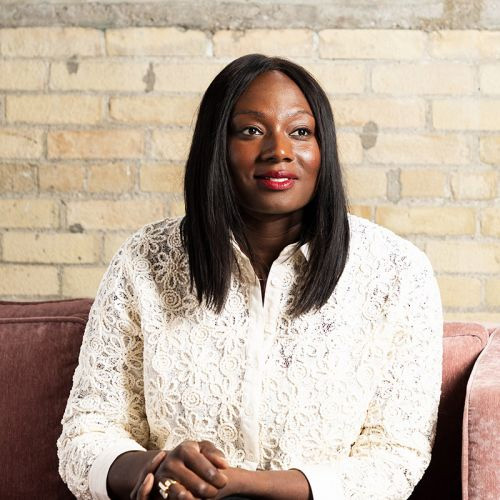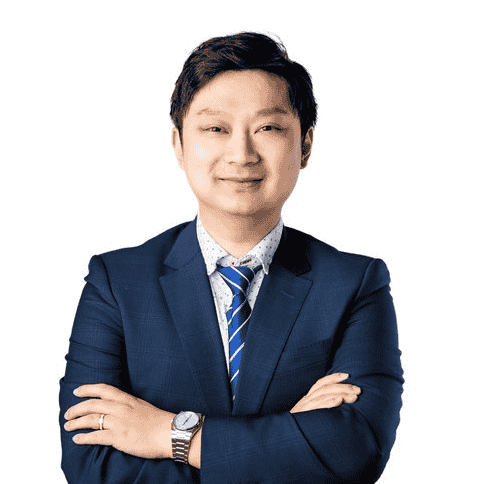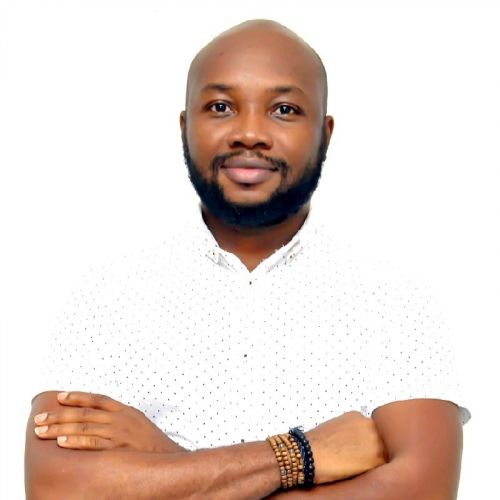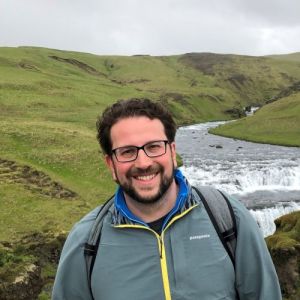Inside DECIEM’s sustainability and social impact strategy
In this #MeetTheMB100 interview, Jacquelyn Kankam, Senior Director of Sustainability and Social Impact at DECIEM, explains how the beauty product business is reducing its carbon footprint and minimising waste in its operations and supply chain.
This interview series is sponsored by EY and Hogan Lovells.
Meaningful Business (MB): Can you tell us a bit about the issues you are trying to solve through your work and why you selected them
Jacquelyn Kankam (JK): At DECIEM, we believe that businesses based on consumption may never be truly sustainable – but we’re working hard to minimise our impact through more responsible packaging, fighting climate change, better waste management, responsible sourcing and product lifecycle, and water conservation.
One of our targets is to look at how we can decarbonise our operations and supply chain. It’s important that we take notice of what we can change in our offices and manufacturing facilities, as well as implementing practices that consumers are more familiar with. We’ve been working on a range of emission reduction activities focused on energy efficiency and switching to less carbon intensive activities, such as renewable energy and renewable energy credits.
Another big issue we are trying to solve is the disconnect between sustainability and social impact. Oftentimes the two strategies aren’t looked at through a holistic lens. We have one team managing both areas, meaning we are able to tie our sustainability strategy to how we show up in the community. For example, with our climate strategy, we lowered our footprint, worked on our employees with work-from-home renewable energy certificates and lastly made a donation to an indigenous community to help them move from diesel to renewable energy.

Jacquelyn Kankam, Senior Director of Sustainability & Social Impact, DECIEM
MB: How are your programmes tackling those problems, and what impact are you having?
JK: Our climate strategy is focused on reducing GHG emissions. In 2020, we began purchasing renewable energy and renewable energy credits (RECs) to cover the majority of our stores and facilities’ energy consumption. We’ve since expanded our use of RECs to also cover the estimated electricity consumption of employees’ home offices around the world. Through these practices, DECIEM is carbon neutral in scopes 1&2.
Our waste and packaging strategy is focused on helping improve our upstream efforts in order to provide our customers with more sustainable packaging alternatives. In order to make sure our packaging is as responsible as possible, we are committing to the following changes by 2025:
– 85-100% of our packaging will be recyclable, refillable, reusable, recycled or recoverable.
– We will increase the amount of post-consumer recycled material in our product packaging by up to 50%.
– 100% of our packaging’s forest-based fibre cartons are FSC certified.
As a downstream solution, DECIEM has implemented an in-store recycling programme with recycling partners local to each region. The programme is currently available in all stores globally, except in South Korea where a robust extended producer responsibility exists. Approximately 85% of DECIEM products are recyclable in residential programs in our key markets, where available.
MB: What is your biggest challenge right now and what support do you need?
JK: As well as solutions to more sustainable packaging, we’re looking at how we can reduce our GHG emissions throughout our supply chain. DECIEM is carbon neutral across scopes 1 & 2, but in order to achieve the same for scope 3, we need more transparency from our suppliers so that we can understand their operational emissions.
Our approach to overcoming this is to bring those who’re part of our supply chain on our journey towards a more sustainable DECIEM, and work with external suppliers that share the same vision as us.
MB: How do you work with partners and the wider ecosystem to achieve your mission?
JK: DECIEM’s mission can be summarised in one sentence: build growth to power good. We recognise that we are in a position of privilege and want to use that privilege to help tackle inequities in society. In 2020 we established The Good Fund to support these three pillars through monetary donations. With the Good Fund, we are committed to taking a human approach to our giving, ensuring that organisations big and small will be positively impacted.
As a company, we’re lucky to have employees that are as passionate about our sustainability practices as our sustainability and social impact team is. As a team, it’s our goal to bring the company along with us on the journey to power good, so it’s important that we’re open about where we are in our journey, and how they’ve contributed to our successes. We’ve implemented the ‘Good Day’ where teams globally can take a paid day’s leave to volunteer for a charity or support an initiative in their local community.
MB: What is your ambition for the future of your business?
JK: Building growth so that we may continue to power good that impacts our people and planet.
MB: How do you measure success?
JK: We have a number of sustainability related targets for climate, waste and packaging, and supplier engagement that we use to measure our annual sustainability success
– Reduce absolute scope 1 and 2 GHG emissions 50% by 2030 from a 2018 base year.
– Reduce scope 3 GHG emissions from purchased goods and services, upstream transportation and distribution, and business travel 60% per unit revenue over the same timeframe.
– Diversion rate target in our operations to increase recycling
– 85-100% of our packaging will be recyclable, refillable, reusable, recycled or recoverable
– Increase the amount of post-consumer recycled material in our product packaging by up to 50%
– 100% of forest-based fibre cartons will be Forest Stewardship Council (FSC) certified.
– Supplier code of conduct
Quickfire questions
MB: How do you spend your time away from work?
JK: I love to travel, I love to see different cultures and experience different parts of the world, and I’m very blessed to have had some great experiences. I remember sitting on an island in the Galapagos and feeling so much appreciation for the world, for the earth, I was blown away. We owe it to the planet to do better, and for me, there is no other option than stepping up and protecting the Earth.
I also love a 5am workout, there’s something special to me working out that early, the world is quiet, there’s a stillness in the air that seems so rare nowadays. In that stillness, it’s just me and a workout.
MB: What’s the best piece of advice you’ve ever received?
JK: The difference between falling and failing is whether or not you get back up. We all fall consistently in life, whether it’s work, relationships, the gym, but it’s just about getting back.
MB: What is something you wish you were better at?
JK: Stepping away – I love what I do and it’s such a privilege to be in this work. I stumbled on my degree almost by accident, as a result, I used to find it hard to truly step away and shut down. Luckily, in the past few years I’ve learned some tricks to help me take restful and peaceful vacations.
I’m trying to live by one of my favourite Maya Angelou quotes “Each person deserves a day away in which no problems are confronted, no solutions are searched for. Each of us needs to withdraw from the cares which will not withdraw from us”.
MB: What is the one book everyone should read?
JK: It’s an old one – The Four Agreements by Miguel Ruiz. Be impeccable with your word. Don’t take anything personally. Don’t make assumptions. Always do your best.
Working in this space can be heavy at times, but I like to think that if I do my best, don’t make assumptions on everyone’s understanding on sustainability and social impact, use my words with purpose, and lastly, realise that I am one piece of the puzzle, I can stay grounded.
Discover the other leaders recognised on the 2022 MB100, for their work combining profit and purpose to help achieve the United Nations Global Goals, here.








